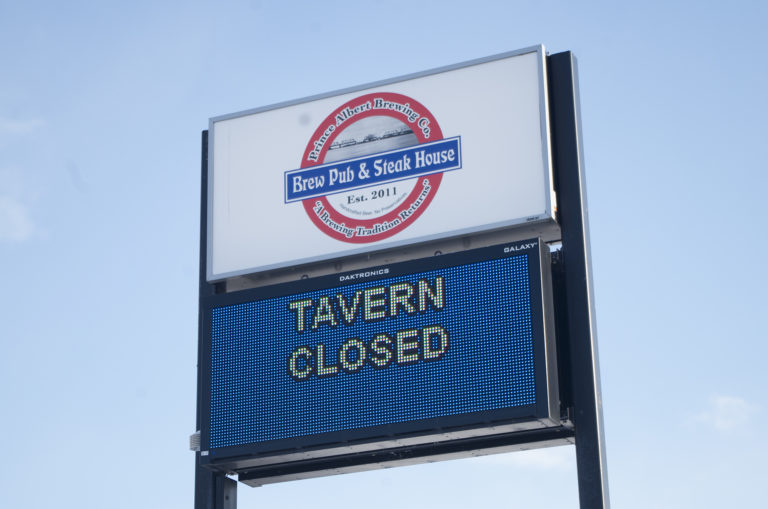
Canada’s food services sector has lost an estimated 800,000 due to the nationwide COVID-19 outbreak.
Even worse, those workers likely won’t have a job to return to once pandemic restrictions are lifted.
Roughly one in ten Canadian restaurants, fast-food outlets, pubs, and taverns have closed permanently due to COVID-19, according to a recent survey by not-for-profit industry advocacy group Restaurants Canada. Mark von Schellwitz, the organizations’ vice-president in Western Canada, says more are well on their way, even with government assistance.
“The relief measures that were announced so far are certainly going to help for some members, but for others, it’s just not enough to be able to keep them in business,” von Schellwitz said. “If they are not going to be open once these social distancing measures are lifted, there’s going to be far fewer businesses for all these temporarily unemployed employees to come back to. This has a big ripple effect.”
Restaurant Canada surveyed 655 owners representing roughly 13,300 food service locations between March 25 and March 29. Those findings show that nine per cent of restaurants have closed their doors for good, but that could jump to 18 per cent if social distancing measures last for at least another month.
Von Schellwitz said most business owners are struggling to pay rent and other fixed operating costs, and those who can don’t have the financial reserves to keep it up. He’s not surprised by the survey results, and estimates those numbers would be much higher if it was conducted after April 1.
“This is evolving daily,” he said during an interview on Thursday. “Yesterday was April 1 when a lot of rent and lease payments and bills were due, and there are a lot of members saying ‘I just can’t pay.’ Without some sort of protection and without some sort of flexible payment terms with their suppliers and with their landlords, they’re going to have a really difficult time trying to stay open one month, never mind two or three months.”
That’s especially true in Saskatchewan, where an estimated 25,000 restaurant workers have already been laid off due to COVID-19 restrictions. The food service industry is the province’s third largest private sector employer, and if conditions don’t improve, sales will drop by more than $500 million in the second quarter of 2020.
“In our 75 years of existence as Canada’s national foodservice association, these are by far the worst numbers we have ever seen,” Restaurant Canada’s president and CEO Shanna Munro said in a media release.
Prince Albert food service business owners say temporary measures like opening liquor offsales and offering take out delivery are not nearly enough to offset the drop in revenue.
Robert McLeod, the majority owner of the PABCO Brewpub and Steakhouse said sales are down between 80 and 90 per cent since COVID-19 restrictions came into place. He’s not sure if they’ll be able to stay open if restrictions last past April.
“Not knowing how long it’s going to last, that’s just as big a problem,” he explained. “You think, ‘oh yeah, we can do this and get by for a month,’ but what happens if it’s still the same after that month? That changes things again.”
McLeod said that could change if the federal or provincial governments offer more relief funding. Right now, he’s in the process of applying for a $40,000 federal loan, which should provide at least another month of stability.
Von Schellwitz said most Canadian foodservice operators need that working capital now, but even if the restrictions end within a month, the industry will still need help getting back on its feet. That will include things like eviction protection, wage subsidies, flexible payment terms on any rents and loans, and marketing dollars to get residents back in restaurants, taverns, bars and nightclubs.
“We’re an integral part of every single community. We’re places where friends meet, where business meetings are conducted, where people celebrate anniversaries, birthdays, etc.,” he said. “We want to make sure that once we are able to start operating again that the government can help us kick-start this really important, and large, sector of Saskatchewan’s economy.”
Restaurant Canada’s survey shows that roughly 80 per cent of foodservice operators have laid off employees since March 1. Roughly 70 per cent expect to cut even more staff if conditions do not improve.
Saskatchewan’s food service industry generates roughly $2.4 billion for the province annually.
